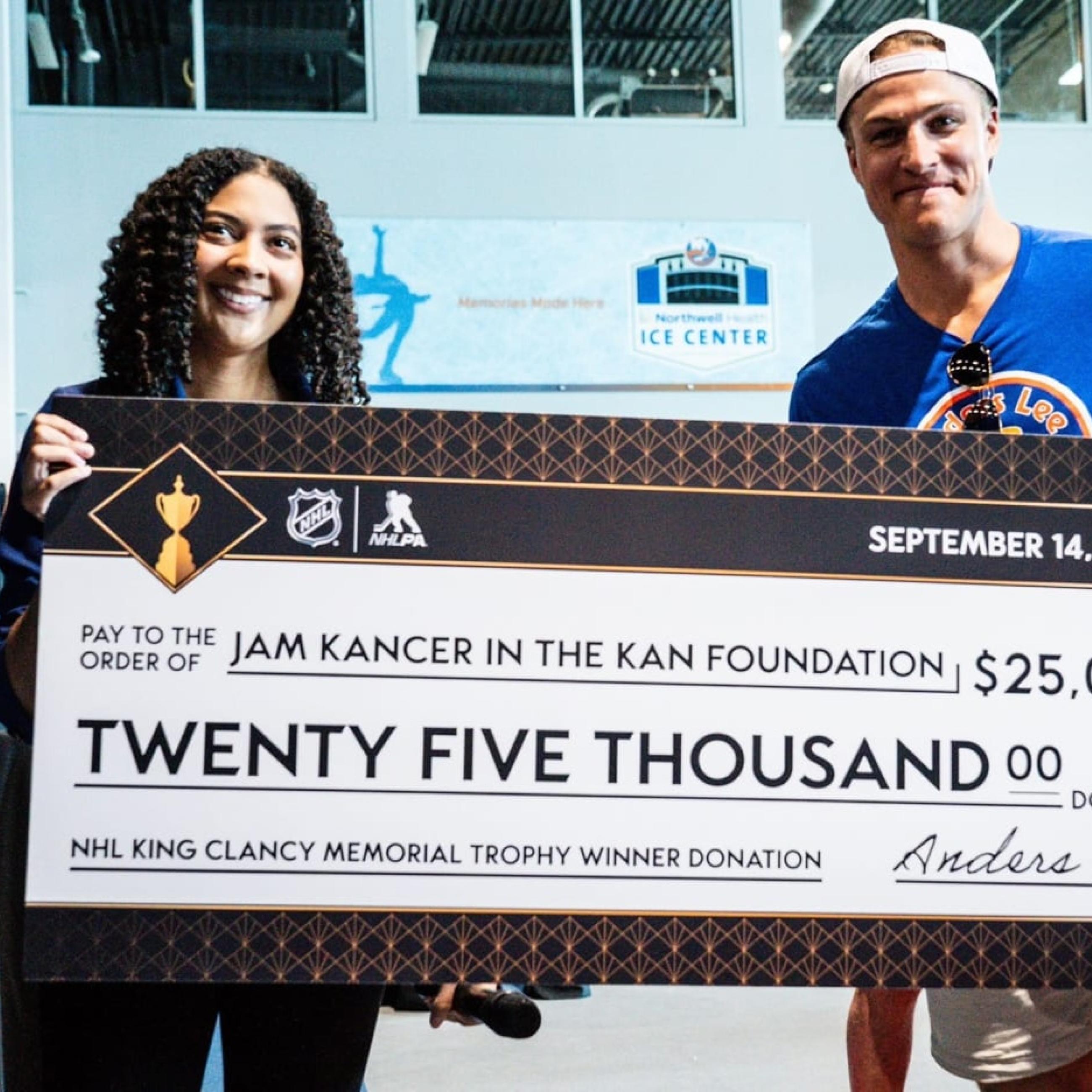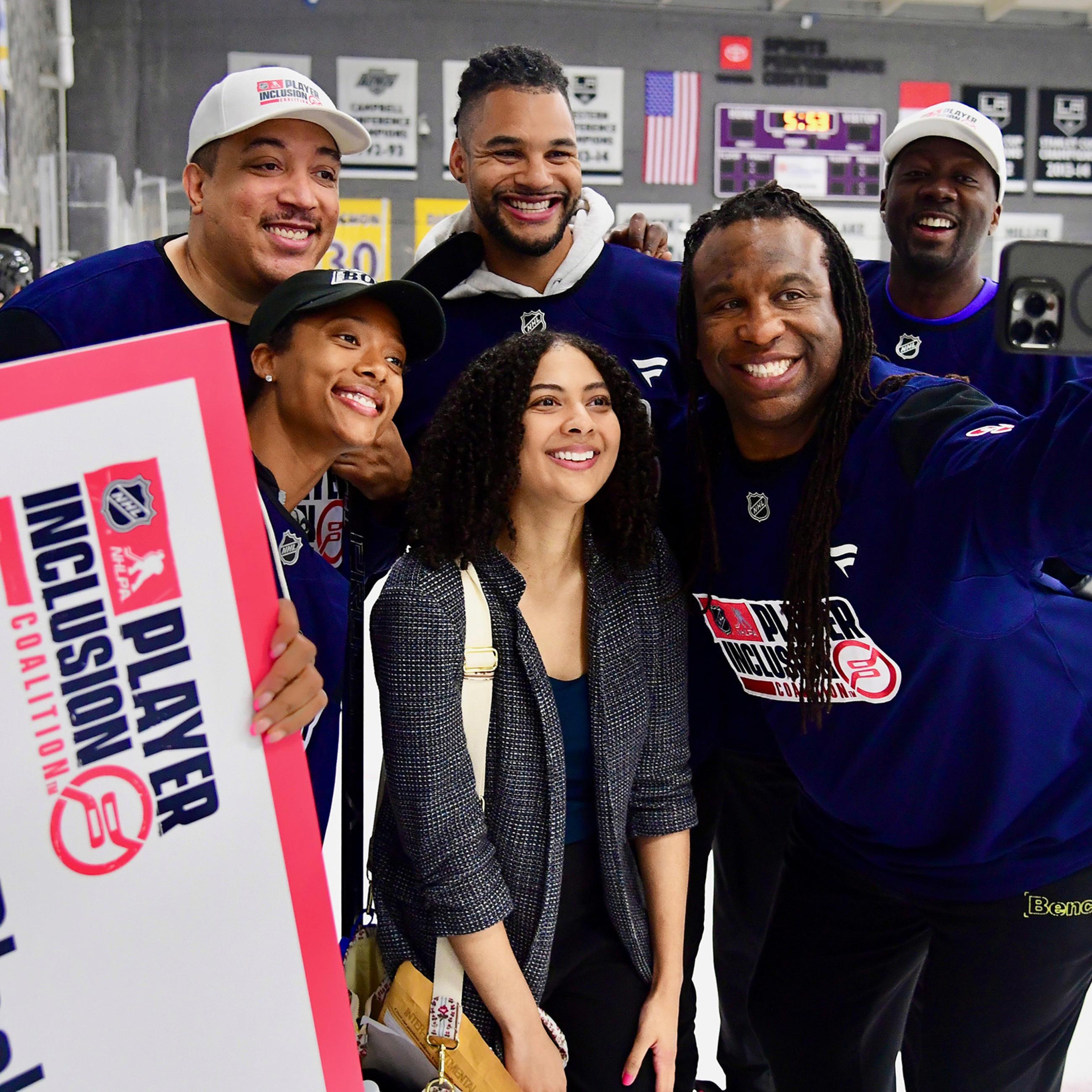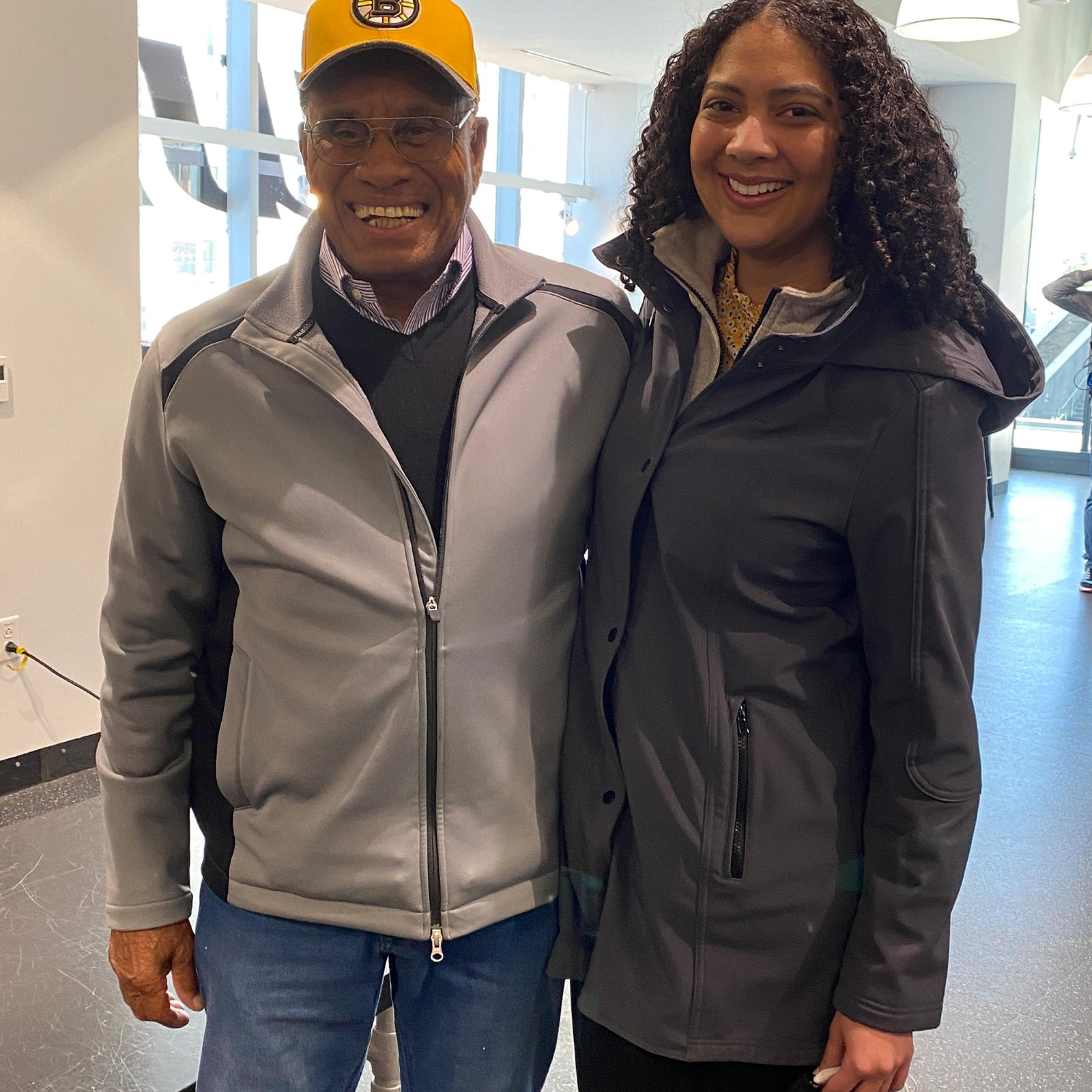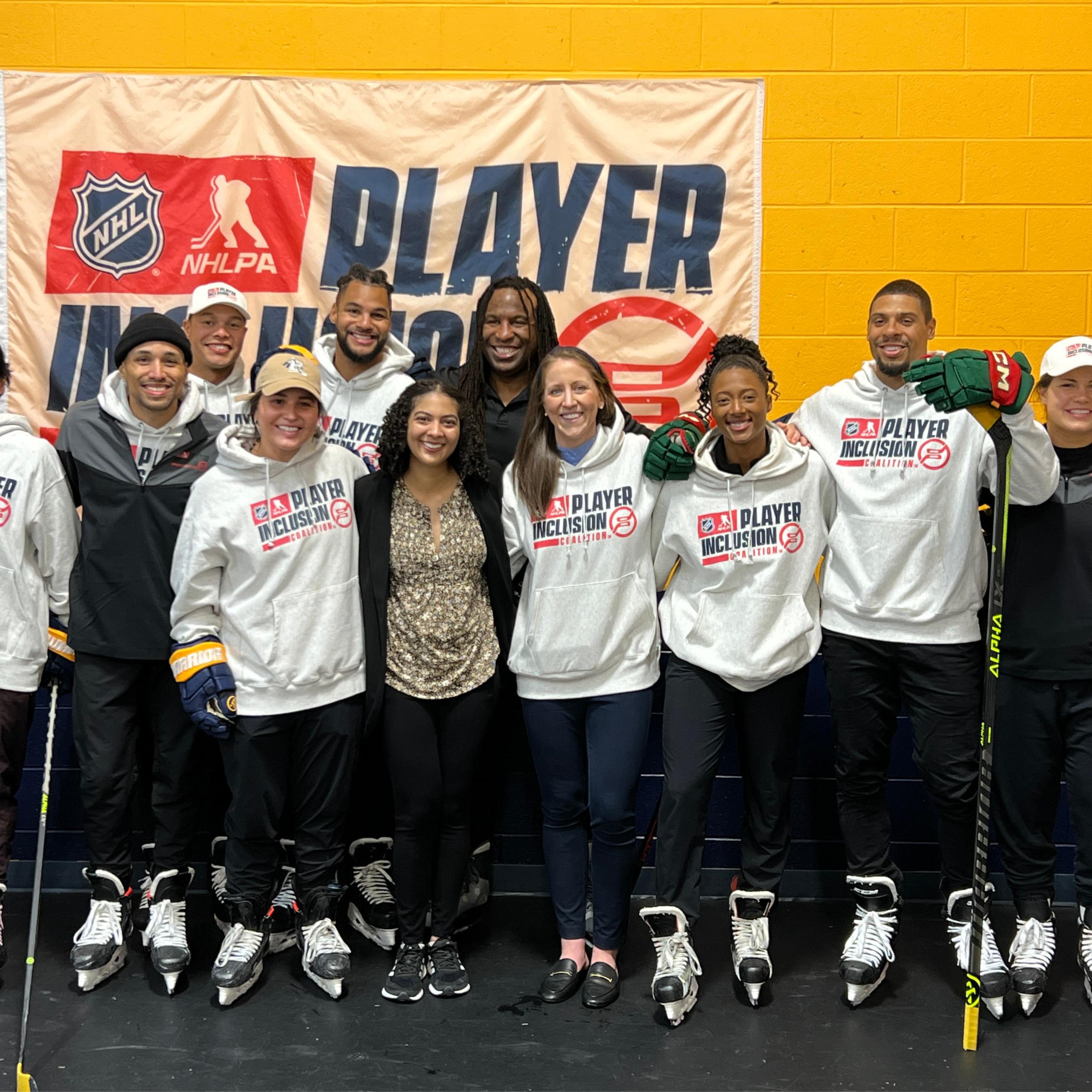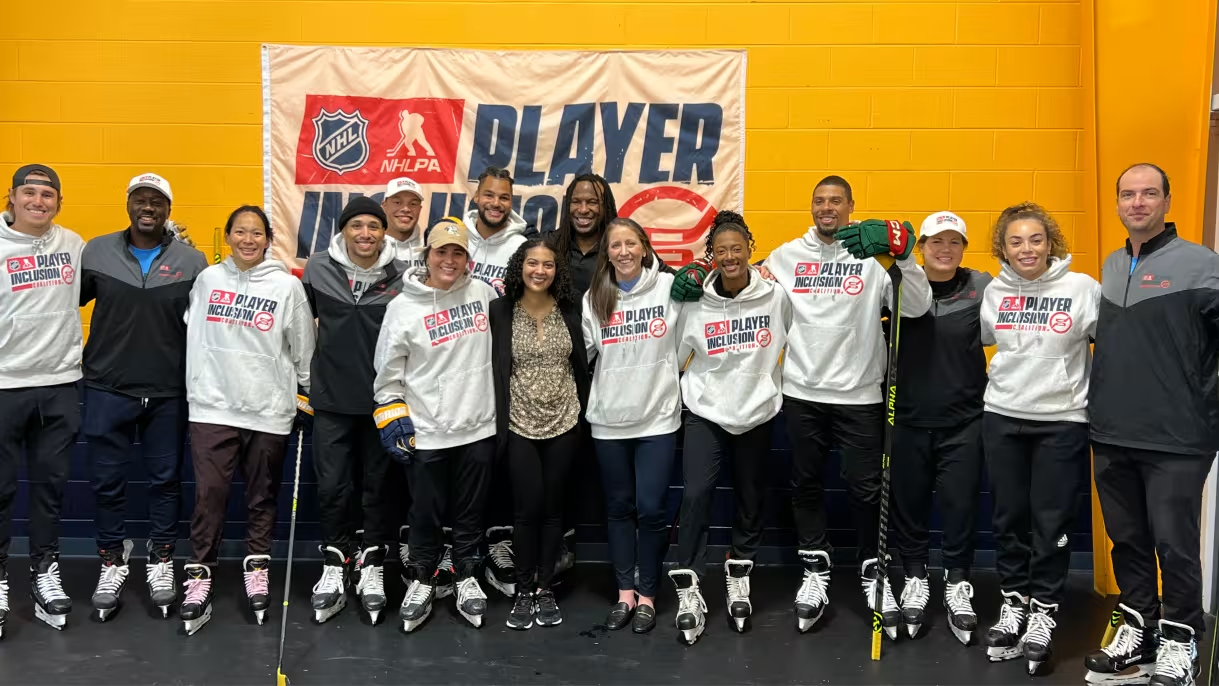

Melissa Parnagian ’17 Helps NHL Players Elevate the Causes They Care About
Michael Eyssimont tried hard to ignore the symptoms.
As a college student, the future forward in the National Hockey League couldn’t maintain his weight or energy levels. Despite being a young and active hockey player, he needed to catch his breath after walking up a set of stairs. After months of denial, his coaches finally convinced him to go to a hospital, where he was diagnosed with Crohn's disease, a chronic inflammatory bowel condition.
Earlier this year, Melissa Parnagian ’17, the NHL’s senior manager for player programs and culture initiatives, recognized the potential of Eyssimont’s story to help others. With his condition under control and his career flourishing, Eyssimont was in a position of influence to shape perceptions about Crohn's disease and the stigma that commonly surrounds it.
In her role, Parnagian helps players elevate the causes they care about off the ice. After strategizing with her, Eyssimont wrote an essay for NHL.com in February with a simple but important message: There shouldn't be any shame associated with having a chronic illness.
“What I loved about working with Mikey Eyssimont was that we were able to provide a platform for his story that reached a national audience in a way that was also meaningful for him,” said Parnagian, who received a bachelor’s degree in public affairs with a certificate in American studies from Princeton’s School of Public and International Affairs.
When initiatives related to social causes and NHL players find their way into the world, it’s often through the work of Parnagian. The job is part leadership development, part strategic communications and marketing. Her expertise and guidance underpin a variety of content, from articles and speeches to social media posts and videos. Her efforts have brought attention to topics ranging from mental health and racial justice to voter participation and beyond — all with the intention of driving meaningful action and change.
“I think we’ve all seen the way sports can bring people together and reach people in ways that other institutions can’t,” Parnagian said. “That includes the ability of individual players to start important conversations, crystallize attention, and build momentum around topics that might not otherwise be in the public consciousness.”
A career highlight for Parnagian was her role in increasing recognition of Willie O'Ree, who became the NHL's first Black player when he took the ice with the Boston Bruins in 1958. She helped lead the push that resulted in O'Ree receiving the Congressional Gold Medal in 2022, the highest honor bestowed by the U.S. Congress — making him the first NHL player to ever receive such recognition.
Parnagian came to Princeton believing she wanted to prepare for a career related to outreach and communications in the policy world, and she gained experience in political campaigns and the offices of elected officials before switching her focus from lawmakers to athletes.
“At its core, a SPIA degree is about problem-solving — incorporating different angles of analysis to understand how to make substantive change in a given situation,” she said. “That skill set of being purpose-driven yet adaptable translates very well when you’re guiding players to embrace their platform across a variety of causes.”
Her entry into the sports industry was unexpected if not shocking. Sports have always been present in her life. Her parents met while working at Yankee Stadium, where her father went on to spend his career, retiring recently as a vice president of operations in charge of food, beverage, and merchandise.
Through her father’s career, Parnagian learned that the people working in the orbit of professional sports were multidimensional, with separate lives and passions outside of the arena. “Having a connection to the sports industry gave me an appreciation that everyone has a life away from the game,” she said. “For all of the skills displayed on the ice or on the field, there is more to understand about who these athletes are as people. I draw on that all of the time.”
Now in her seventh year with the NHL, Parnagian only sees the platform of professional athletes becoming bigger, with players growing even more aware about their potential to advocate for the causes they believe in.
“If you look around the sports industry, every trend shows that athletes are becoming stronger brands on their own,” she said. “As that trend continues to grow, each athlete has a bigger platform to do something meaningful. That is going to be a source of a lot of good.”
Melissa Parnagian (front, center) with NHL Player Inclusion Coalition. Photo Credit: Melissa Parnagian.


